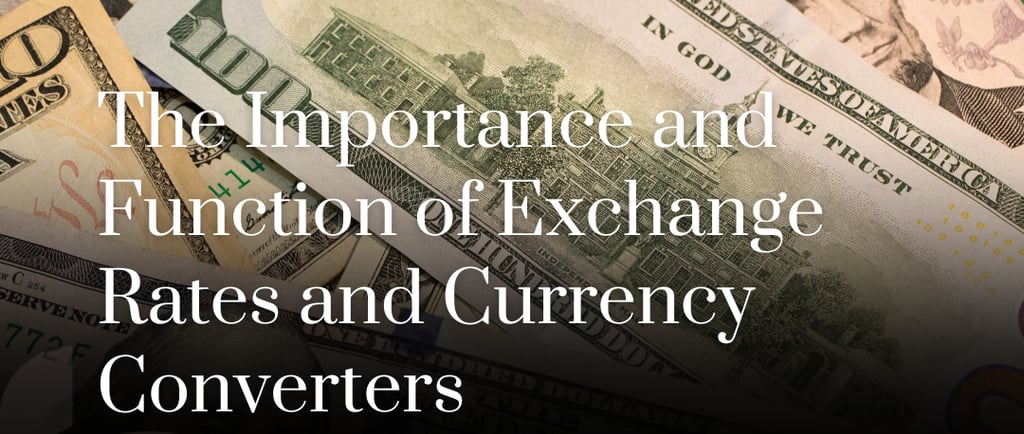EXCHANGE RATES & CURRENCY CONVERTER
Learn about the importance and function of exchange rates & currency converter in today's global economy. Discover how exchange rates impact international travel, e-commerce, global business, and investment decisions, and how currency converters help individuals and businesses navigate cross-bord
MARKET BASICS
Platinum Sponsor Nusantara Global
1/15/20253 min read


In an increasingly globalized world, the ability to easily convert one currency to another using a currency converter has become crucial for both individuals and businesses. Whether for international travel, online shopping, or conducting cross-border trade, currency converters play a significant role in ensuring that individuals and companies can efficiently convert money based on current exchange rates. This article discusses the importance and function of exchange rates and currency converters, as well as their benefits and applications.
An exchange rate is the ratio between two currencies that determines the value of one currency relative to another. For example, an exchange rate of 1 USD = 4.5 MYR means one US dollar is equivalent to 4.5 Malaysian ringgit. Exchange rates fluctuate depending on various economic, political, and supply-demand factors in the international market, and a currency converter can help calculate the exact conversion amount based on these rates.
Here are 10 major companies in Malaysia that rely on currency converters in conducting their business:


Exchange rates are influenced by several key factors. A country's economy is one of the most important factors; countries with a strong economy tend to have higher exchange rates compared to countries with weaker economies. Interest rates also play a significant role, as central banks in certain countries set interest rates that affect the flow of money in and out, thereby influencing the value of the currency.
Additionally, political stability affects the value of currencies, where political stability and government policies impact investor and market confidence in a country's currency. International trade also has a significant effect; countries that export and import goods and services tend to have more stable exchange rates because it increases demand for the country’s currency.
Currency converters are important in various aspects of life, especially in international travel, online shopping, global business, and investment. When traveling abroad, tourists need to exchange their currency for the local currency, and using a currency converter helps them plan their budget accurately. In e-commerce, currency converters allow users to calculate the actual cost of goods from foreign countries.
For businesses, understanding exchange rates through a currency converter is vital for planning import and export costs as well as profits from international trade. Moreover, investors and forex traders use currency converters to make informed decisions based on currency fluctuations.
There are two main types of exchange rates: fixed exchange rates and floating exchange rates. A fixed exchange rate occurs when a country sets the value of its currency against another currency, often pegging it to a strong currency such as the US dollar or the euro.
In contrast, with a floating exchange rate, the value of the currency is determined by the market based on supply and demand, and it fluctuates according to economic conditions and global market trends. Currency converters can help track these fluctuations and provide accurate exchange rate calculations.
Exchange rates are a crucial element in the global economy, influencing everything from international trade to travel and investment. With a good understanding of the factors affecting exchange rates, individuals and businesses can make more informed and effective financial decisions. In an increasingly interconnected world, currency converters have become an indispensable tool for managing cross-border transactions and leveraging opportunities in the global economy.


